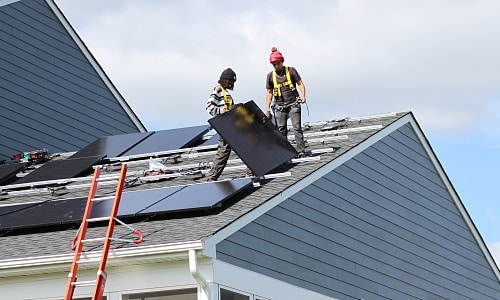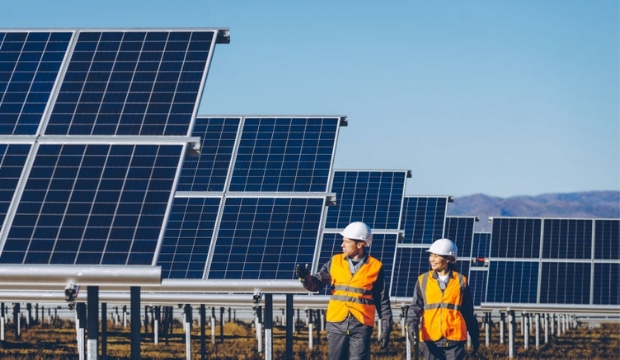Lease Solar Panels Virginia: Lumina Solar Focuses On Supplying Advanced Photovoltaic Solutions For Residences And Organizations
History and Establishing
Have you ever wondered how a solar panel business springs from a simple trigger of motivation into a powerhouse of renewable resource? It frequently starts with a vision-- one fueled by a mix of development, determination, and a pinch of serendipity. The journey of numerous solar business mirrors the development of the innovation itself: from bulky, inefficient panels to smooth, high-efficiency marvels utilizing the sun's bounty.
The Early Days
In the late 20th century, when solar energy was still a specific niche idea, pioneers planted seeds for what would become a worldwide motion. Picture a small workshop filled with curious engineers, tirelessly exploring with photovoltaic cells. Their passion was palpable, frequently driven by a desire to fight climate change and minimize reliance on fossil fuels.
One such anecdote is about a founder who, influenced by an outdoor camping journey, recognized that even in remote areas, the sun might power vital devices. This simple observation stimulated a company's objective to democratize access to clean energy.
Establishing Principles

- Development: Constantly pushing the borders of solar technology to enhance effectiveness and durability.
- Sustainability: Dedicating to environment-friendly production and lowering carbon footprints.
- Ease of access: Making renewable resource options economical and useful for everyday users.
Turning points in Development
| Year | Key Occasion |
|---|---|
| 1985 | Company founded in a small garage, focusing on research and development. |
| 1995 | Industrial solar panel product launched, gaining regional attention. |
| 2005 | Broadened to worldwide markets, welcoming global renewable energy objectives. |
| 2015 | Presented advanced photovoltaic panel technology with improved energy conversion. |
Isn't it fascinating how these incremental actions, frequently neglected, form the energy landscape today? The photovoltaic panel company story is not simply about technology; it has to do with a relentless mission for a brighter, cleaner future.

Developments in Solar Panel Technologies
Ever seen how some photovoltaic panels shine brighter and last longer? It's not magic; it's the science of photovoltaic efficiency. Modern photovoltaic panel companies invest heavily in innovations like bifacial cells, which catch sunshine from both sides, increasing energy harvest without expanding roofing system area. Have you ever questioned why some panels carry out better on cloudy days? That is because of advances in thin-film solar technology, which flourishes under diffused light conditions.
Product Variations Tailored to Distinct Requirements
One size never fits all. Photovoltaic panel suppliers now provide:
- Monocrystalline panels for maximum efficiency and sleek aesthetic appeals, suitable for space-constrained roofs.
- Polycrystalline panels, which provide a cost-efficient alternative without sacrificing too much output.
- Building-integrated photovoltaics (BIPV), merging solar tech effortlessly into architectural components like windows and facades.
Choosing the best product isn't almost in advance cost; it's about matching your environment, energy objectives, and long-lasting cost savings. Homes shaded by trees require panels that stand out in low-light here circumstances, something numerous neglect till energy costs climb up suddenly.
Technical Tips for Optimal Choice
- Assess the temperature coefficient-- lower values imply panels lose less performance on hot days.
- Try to find panels with boosted anti-reflective finishings to take full advantage of light absorption.
- Consider the panel's warranty not just for defects, but for guaranteed power output over decades.
- Do not undervalue the value of the inverter technology coupled with the panels; it can make or break your system's efficiency.
Beyond Panels: Emerging Trends
Envision solar panels that change their angle automatically to chase the sun-- tracking systems are ending up being more available, increasing yield substantially. Or solar tiles that blend undetectably into your roofline, changing your home into a silent, self-dependent power generator. These innovations are reshaping what a photovoltaic panel business offers-- not simply products, but integrated energy options.
Market Existence and Global Operations
Ever question why some photovoltaic panel business appear to sprout up in every corner of the world while others hardly make a ripple? The difference lies not simply in technology however in mastering the art of navigating varied markets. Expanding worldwide resembles planting seeds in different environments-- you should understand each environment's special conditions to thrive.
Take, for instance, the intricate dance of logistics and supply chain management. Shipping panels halfway throughout the world isn't almost distance; it has to do with timing, custom-mades, tariffs, and adapting to regional need fluctuations. A company with robust international operations expects these variables, making sure panels arrive on schedule without pumping up costs. This insight is no small accomplishment and frequently separates market leaders from followers.
Secret Methods for Expanding Market Existence
- Localized manufacturing: Developing production hubs near target markets lowers shipping delays and import intricacies.
- Strategic partnerships: Teaming up with local firms speeds up market penetration and constructs trust.
- Adaptive item style: Customizing solar panel tech to weather, sun strength, and facilities subtleties boosts efficiency and acceptance.
What about the human element? Solar panel companies running globally should fix up cultural differences and regulatory subtleties without forgeting their core objective. For example, what works in a sun-drenched desert might falter in a humid coastal region. Sometimes, the most ingenious option is just listening-- soaking up local insights to fine-tune technology and approach.
Experts frequently recommend a phased rollout rather than a shotgun growth. Why risk overextension when measured development constructs sustainable momentum? Scaling wisely indicates balancing ambition with operational resilience - Solar Panel Installation Virginia. In the race for sustainable energy supremacy, patience can be as important as speed.
Ecological Impact and Sustainability Practices
When solar panels initially emerged, numerous presumed they carried zero ecological baggage. However, the truth is more nuanced. The production of solar batteries involves rare earth metals and energy-intensive processes, which can leave a substantial carbon footprint before the panels even reach roofs. Yet, the true environmental expense depends heavily on the sustainability practices utilized by the solar panel business throughout the lifecycle of their products.
How typically do we pause to consider what occurs to photovoltaic panels at the end of their useful life? Unlike batteries or electronic devices, solar panels can last 25-30 years, but disposal and recycling pathways remain underdeveloped in numerous regions. A company committed to decreasing ecological damage will have a robust strategy for recycling photovoltaic materials, restoring valuable silicon, glass, and metals to avoid garbage dump build-up.
Key Sustainability Strategies
- Using low-impact manufacturing methods that minimize water and energy usage.
- Executing closed-loop systems to recycle production waste back into brand-new panels.
- Participating in transparent supply chain audits to ensure ethical sourcing of raw products.
- Creating panels for simpler disassembly to assist future recycling efforts.
It's worth keeping in mind that some solar companies have actually originated innovative approaches, such as integrating naturally degradable parts or using less harmful chemicals during fabrication. This not just lowers environmental stress but likewise sets a precedent for the market. The concern remains: can the solar industry really pivot towards a circular economy design without sacrificing effectiveness or affordability?
Expert Tips for Assessing Sustainability
- Ask about the company's dedication to carbon-neutral production and whether they offset emissions.
- Investigate if they partner with licensed recycling facilities committed to solar panel waste.
- Look for transparency reports detailing ecological effects and sustainability goals.
- Think about the longevity and warranty of panels as an indirect procedure of resource performance.
In the end, choosing solar energy must indicate more than just slashing electricity expenses; it has to do with supporting a future where energy is collected properly and waste is thoughtfully handled. Solar panel business that welcome this approach not just light up homes however likewise cast a brighter light on sustainable innovation.